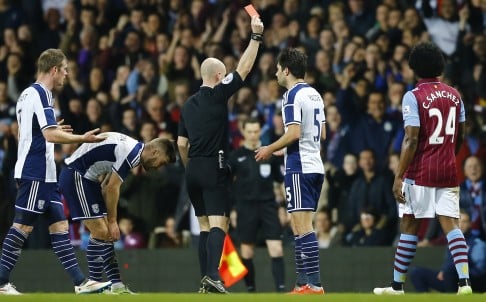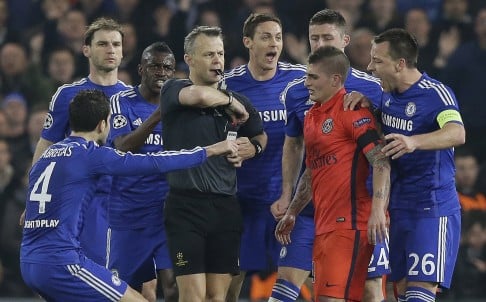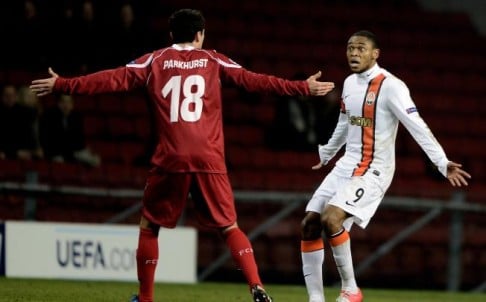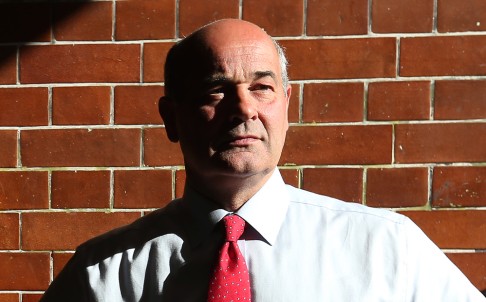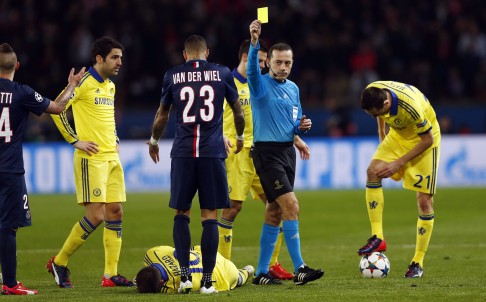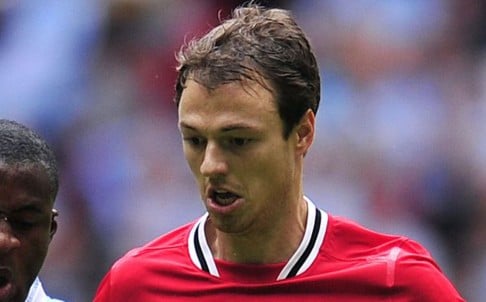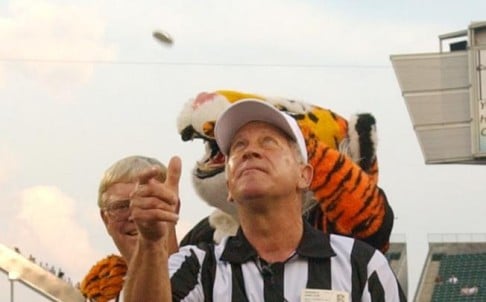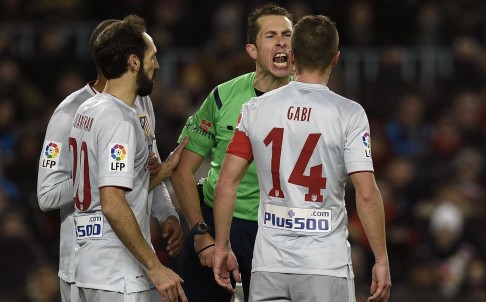How
much is a coin toss worth? Can foolishly faking a frivolous flip and
flick of a thin metallic disc prove financially tempting? You bet. Five
years ago, the going rate was 100,000 yuan (US$16,000).
This was the amount Chinese referee Huang Junjie accepted from fellow
referee Zhou Weixin to rig the coin toss between Manchester United and
FC Shenzhen in 2007. Huang fixed the flip to ensure Shenzhen kicked off
the match in Macau.
Huang and Zhou admitted this in court when they became the first
referees to face trial in December 2011, following a two-year crackdown
on soccer corruption in China. Soon after,
Lu Jun, a former World Cup referee, stood trial. Lu was previously considered China's most
respected referee, nicknamed the
"golden whistle" for his impartiality.
Lu was found guilty of accepting 350,000 yuan for fixing a match in
2003 and subsequently received a five-and-a-half year jail sentence. In
an instant, China's golden match official joined the ranks of corrupt
referees on the mainland, who are dubbed
"black whistles". These
infamous black whistles also received life bans.
In recent weeks, major organisations have declared
match-fixing to be
widespread.
A report by Europol revealed about 700 matches worldwide,
including Champions League ties and World Cup qualifiers, were suspected
of having been fixed.
And last week, Interpol met with Fifa officials at a conference in
Kuala Lumpur jointly hosted by the Asian Football Confederation to set
tougher laws in the battle against criminal syndicates suspected of
match-fixing.
The AFC announced it had established a task force that would
collaborate with all stakeholders and educate member associations on
ways to tackle match-fixing in Asia.
Rational Ref is keen to see what kind of role, and support, match
officials will be given in this initiative to combat suspect practices.
Take, for example, the rigging of the seemingly straightforward coin
toss.
The tradition of the coin toss is based on Western culture. Observe
most Western referees and they will place the coin on top of their thumb
and forefinger to flick the coin up in the air. The coin will twist and
twirl in a blur and then be caught in the same hand that flipped it.
Without looking at the coin and in one smooth movement, the coin is
slapped onto the back of the other hand and then revealed.
This is the standard protocol of the coin toss, providing you are
British, Australian, Canadian or American. Last Tuesday night,
Australian referee Chris Beath performed the standard coin toss as
expected during the AFC Cup match between Kitchee and Churchill Brothers
from India.
But watch referees from continental Europe, Asia or South America,
and the coin toss action varies considerably. Some cannot flip the coin
using their thumbs, some catch the coin with both hands, some catch and
reveal using only one hand, some let the coin land on an open palm, and
others will let the coin fall to the ground after throwing the coin up
without imparting any spin. Some referees are just clumsy and fumble the
coin toss.
Furthermore, the rulebook assumes all referees know how to flip a
coin. It states:
"a coin is tossed and the team that wins the toss
decides which goal it will attack and the other team takes the
kick-off".
Since there is no accepted coin toss protocol, criminal syndicates
have benefited. For instance, what's to prevent referees from catching
the coin in an open palm, seeing the result and then deciding whether or
not to slap it over on the other hand, depending on the desired
outcome? There have been occasions where Chinese referees catch the coin
in the open palm, with the wrist slap being optional.
Details are unknown about the infamous coin toss at the Manchester
United versus FC Shenzhen match. If the referee did not rig the actual
toss, he could have easily used another suspect method.
Hypothetically, the referee, having gone through the motions of the
coin toss, could quickly look at the result and declare Manchester
United would choose ends, thus leaving FC Shenzhen to kick off, which
was the prearranged outcome.
Any visiting player to China, such as 33-year-old Ryan Giggs five
seasons ago, could easily dismiss this as a cultural peculiarity and in
any case would just want to get the match started without fuss. In
hindsight, we know it was an easy 100,000 yuan for a black whistle to
make.
Hence, this simple example of a corrupt coin toss is just the tip of the iceberg for AFC's new task force.
Rational Ref reckons referees on the right side of the law can assist
the task force in its fight against match-fixing. After all, referees
are whistleblowers.






